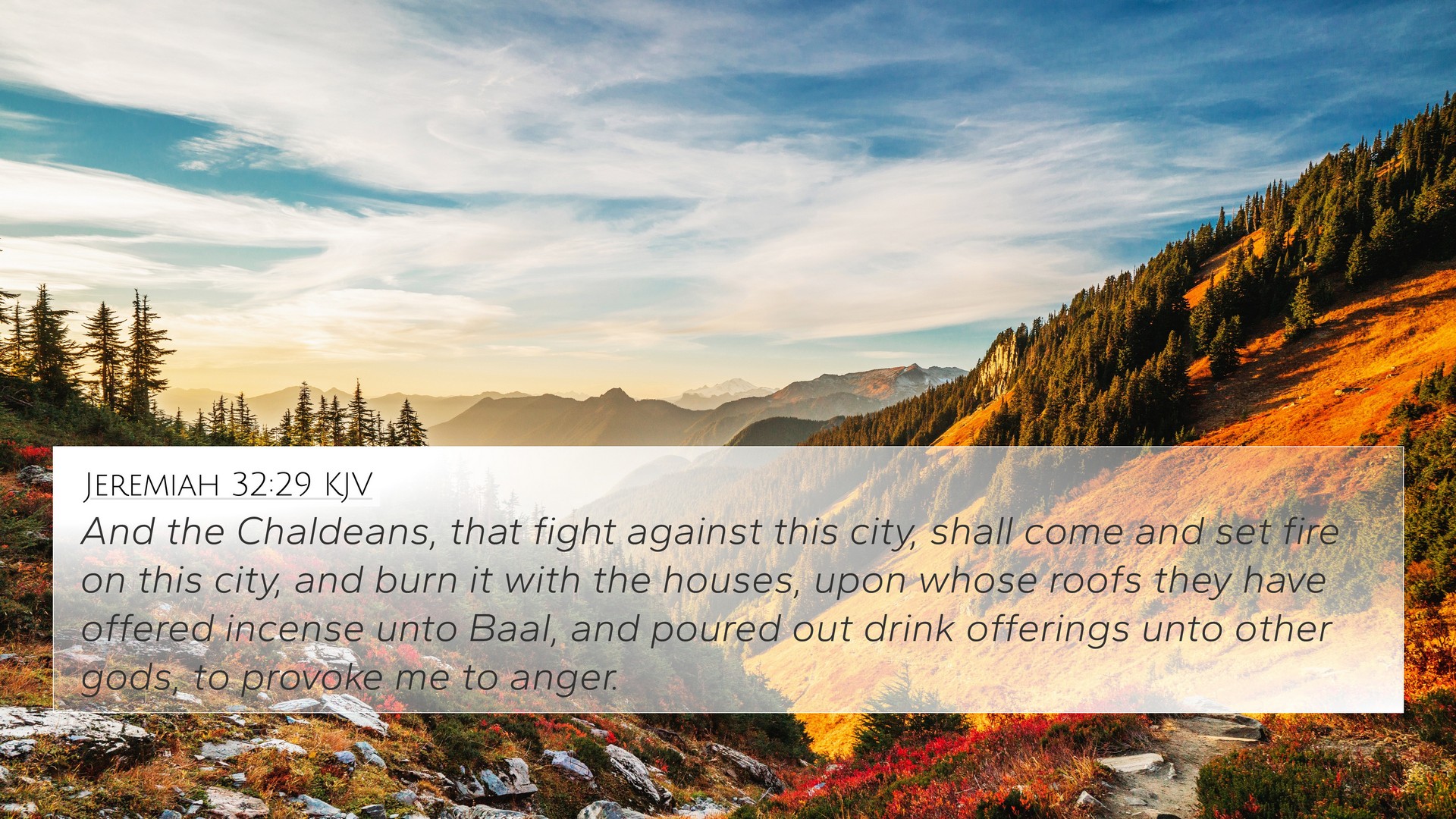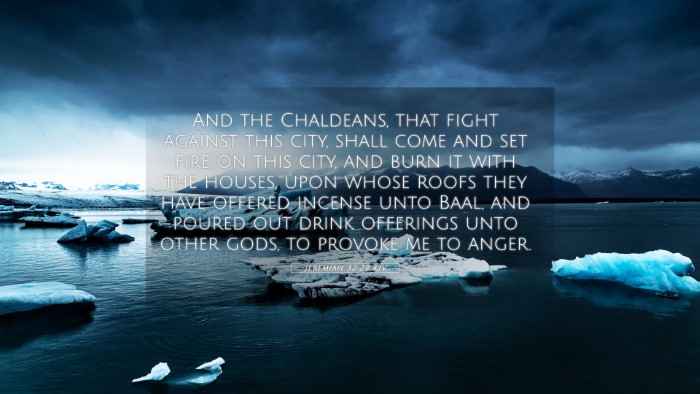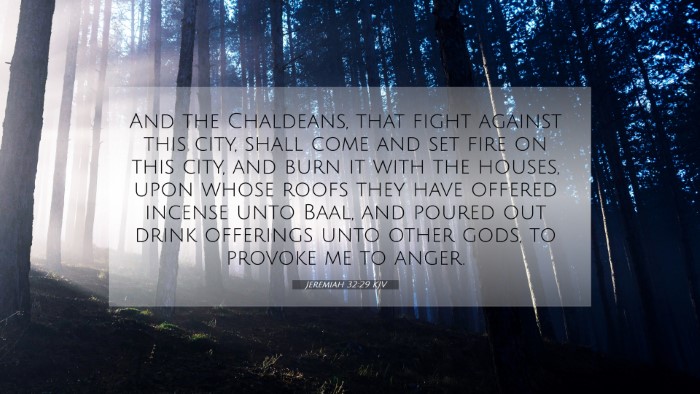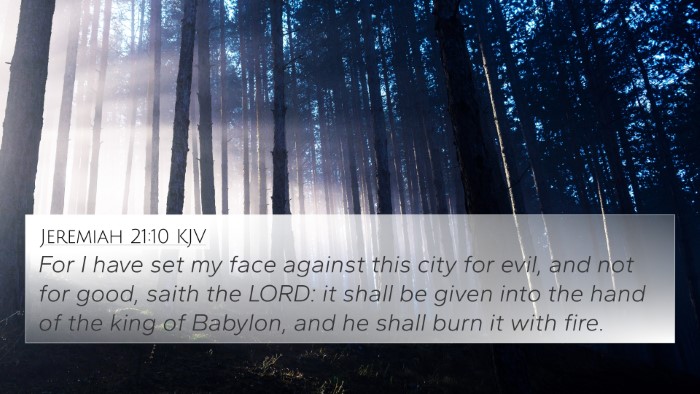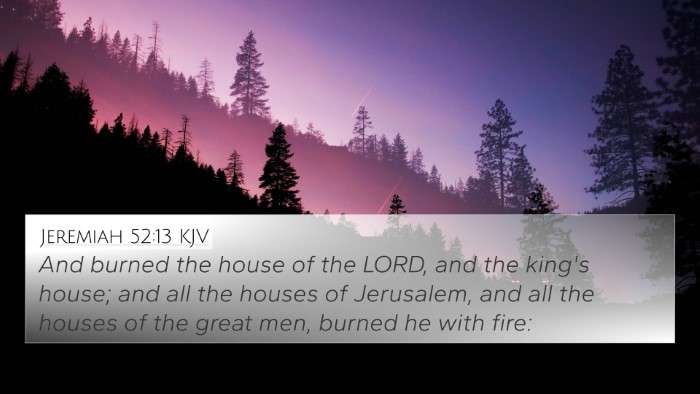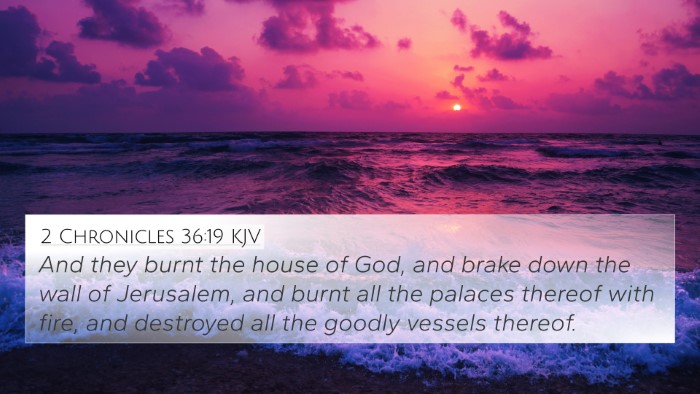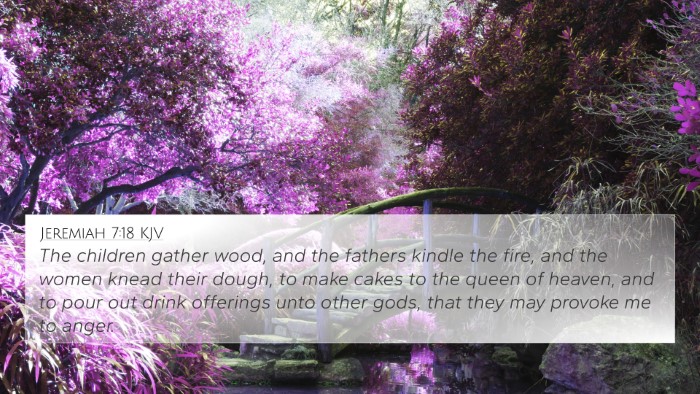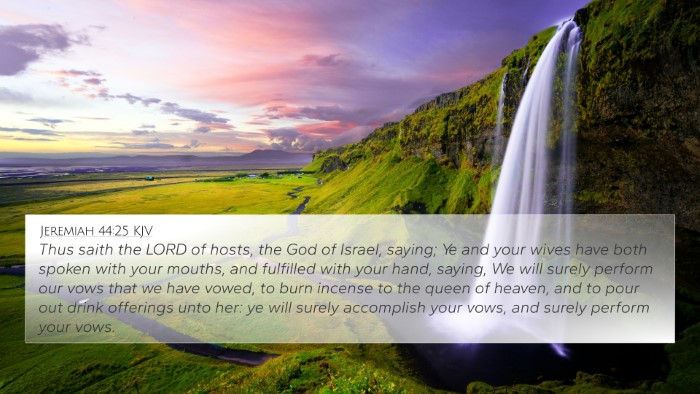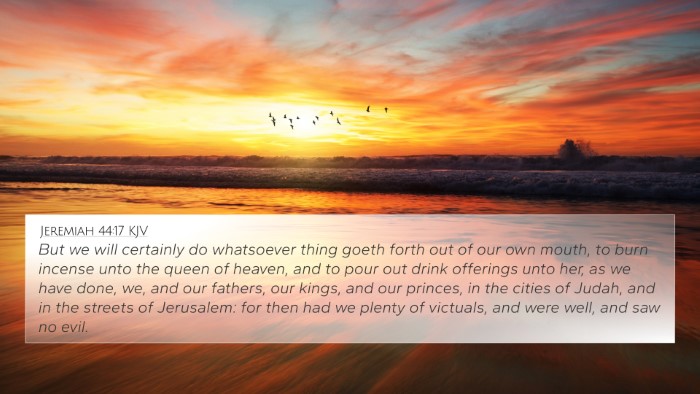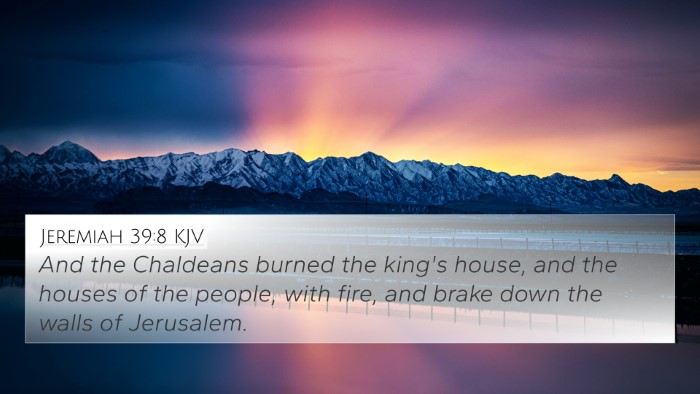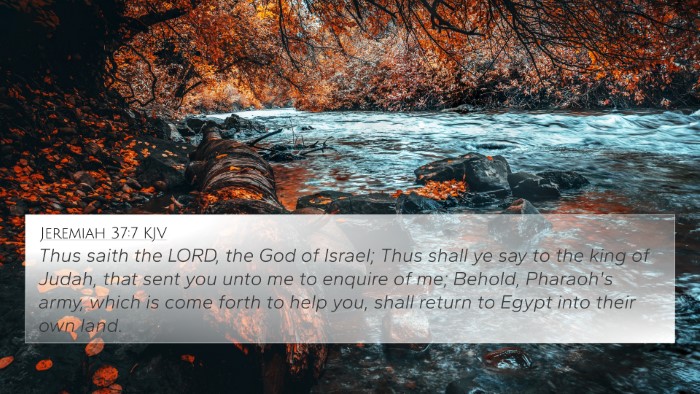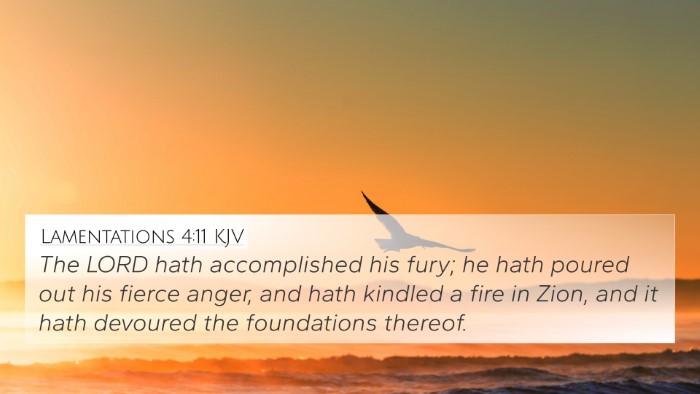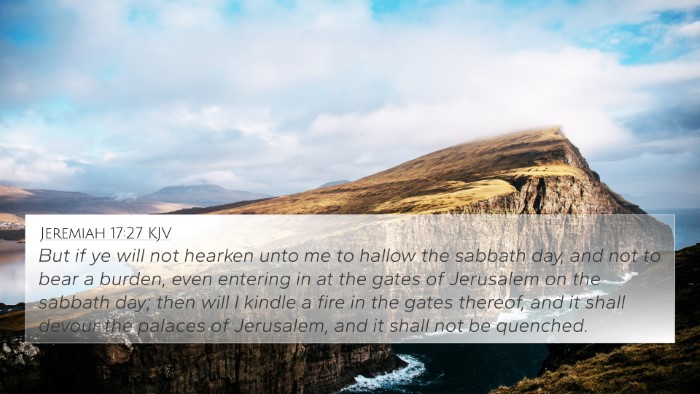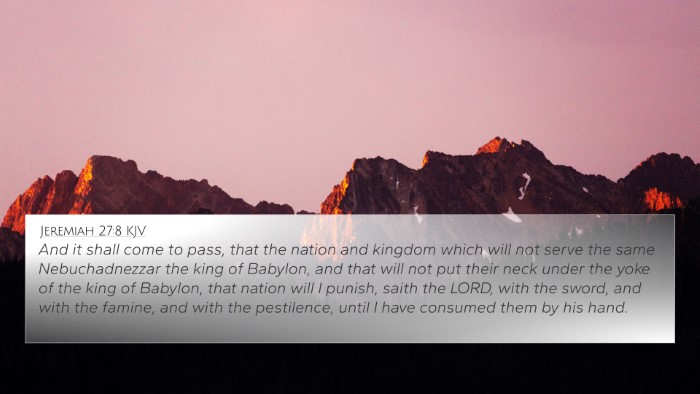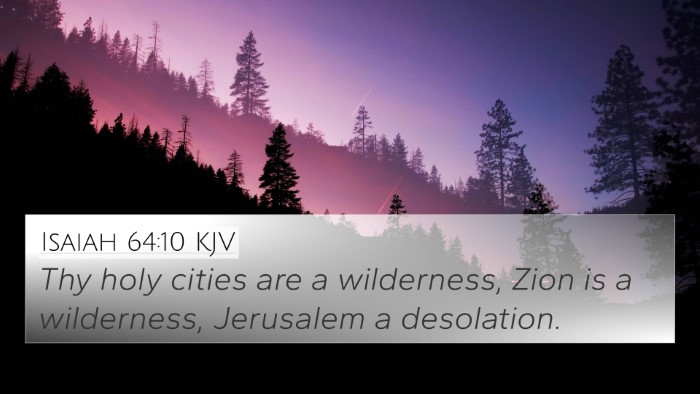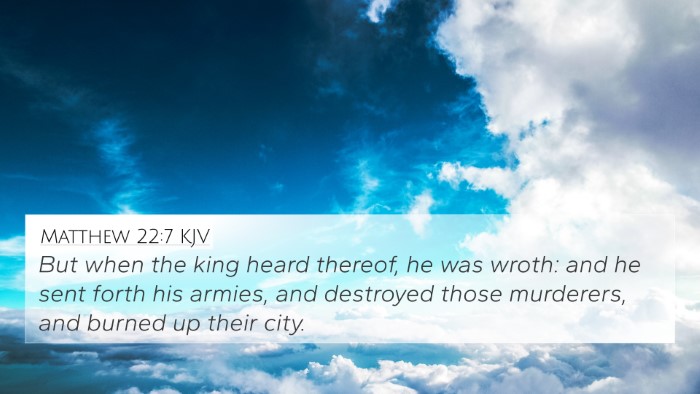Understanding Jeremiah 32:29
Verse: Jeremiah 32:29 - "And the Chaldeans, that fight against this city, shall come and set fire on this city, and burn it with the houses, upon whose roofs they have offered incense unto Baal, and poured out drink offerings unto other gods, to provoke me to anger."
Overview
Jeremiah 32:29 is a prophetic declaration by the prophet Jeremiah regarding the impending destruction of Jerusalem by the Chaldeans (Babylonians). This verse highlights the consequences of the people's idolatrous practices, particularly the worship of Baal and other foreign gods. It serves as a critical reminder of the covenant relationship between God and His people, emphasizing that their disobedience leads to dire consequences.
Commentary Insights
Matthew Henry's Commentary
Matthew Henry notes that the Chaldeans represent the instrument of God's judgment. They will destroy the city, which has gone astray into idolatry. The anger of God is directed towards a people who have turned their backs on Him, preferring the worship of idols over their Creator. This passage stresses God's righteousness in judgment and the seriousness of sin.
Albert Barnes' Commentary
Albert Barnes elaborates on the idea that the destruction mentioned is not arbitrary but results from the persistent sin of the Israelites. He emphasizes that their actions, which included offering sacrifices on rooftops, are indicative of their rebellion against God's law. This prophetic warning serves not just as a forecast but as a reflection of divine justice where God allows the consequences of sin to unfold.
Adam Clarke's Commentary
Adam Clarke points out that the "houses upon whose roofs they have offered incense" reveals the blatant disregard the Israelites had for the commandments. He notes that the mention of burning the city illustrates complete devastation and serves as a manifestation of divine wrath against idolatry. Clarke encourages understanding this verse within the broader narrative of Israel's history of disobedience.
Thematic Connections
This verse can be cross-referenced with several other biblical texts that deepen our understanding of its meaning. Here are some thematic Bible verse connections:
- Deuteronomy 11:16-17: Warns against turning away to other gods, relating to the consequences mentioned in Jeremiah.
- 2 Kings 25:9: Describes the burning of the city, providing a direct correlation to Jeremiah’s prophecy.
- Ezekiel 8:17: Highlights the abominations committed by the people of Judah, connecting idolatry to divine judgment.
- Isaiah 1:28: Discusses the fate of rebels and sinners, paralleling the fate of Jerusalem as foretold by Jeremiah.
- Matthew 23:37: Relates to Jesus expressing sorrow over Jerusalem, recalling the city's history of turning from God.
- Revelation 18:2: Echoes the theme of judgment against sinful nations, such as Jerusalem's idolatry.
- Romans 1:18-25: Discusses the consequences of idolatry, the core reason for Jerusalem's fate as seen in Jeremiah.
Interpretation and Application
The significance of Jeremiah 32:29 reaches beyond its historical context, offering deep insights into the nature of God, sin, and judgment. As believers and seekers of biblical understanding, reflecting on this verse invites contemplation on how idolatry can manifest in modern contexts:
- Self-Examination: What modern-day idols might we be nurturing in our lives?
- Community Reflection: How can communities draw closer to God, avoiding the path of disobedience?
- Theological Consideration: Understanding God's justice and mercy in light of our failures.
Resources for Cross-Referencing
For those looking to dive deeper into the connections made in Scripture, several tools for Bible cross-referencing are available:
- Bible Concordance: An invaluable resource for locating specific verses and their implications.
- Bible Cross-Reference Guide: Provides insights on connecting various scriptures thematically.
- Cross-Reference Bible Study: Methods for engaging with Scripture that emphasize interconnectedness.
Conclusion
Jeremiah 32:29 serves as both a warning and a call to reflection. It encapsulates the consequences of straying from God's commands while emphasizing the need for humility and repentance. As we study this verse, may we draw connections throughout Scripture that bolster our understanding of God's overarching narrative of redemption and judgment. In exploring the thematic connections and cross-references in the Bible, we can better appreciate the rich tapestry of God’s message to humanity.
